Infographic: Stress, Depression, and the Emotional Side of MS In America
We collected information about the experiences of 5,023 people living with MS in the 8th Annual MS In America survey. The survey ran from March 2020 until July 2020, a time of emotional upheaval and massive changes in the US and worldwide. Even without the added help of a global health crisis, MS can have a significant impact on mental wellbeing due to its numerous symptoms, the strain on relationships, and the loss of control over one’s body. Added stress from external factors can make MS symptoms flare and make a person with MS feel worse. In this infographic, we wanted to focus on mental and emotional health issues and how they affect the MS community.
Depression and anxiety
MS is what many in our community call an identity thief - it can threaten and thwart one’s relationships, career, and even cognitive functioning. These aspects of life often shape our identity and feelings of purpose, so when MS challenges these ideas, it can shake the very foundation of our sense of self. It’s all too easy to understand why so many people with MS experience depression and anxiety.
MS exacerbations
An MS exacerbation, or relapse, occurs when the immune system is actively attacking myelinated nerves in the brain and spinal cord. The attack often results in new symptoms appearing or existing symptoms suddenly getting worse. Exacerbations can look very different from person to person: they can range from being mild, with little effect on one’s functioning, to severe, interfering with the ability to carry out normal tasks at home and at work. Exacerbations often occur without warning or reason, but external factors like stress, illness, or temperature changes can also trigger relapses.
The mental toll of chronic pain
From neuropathy to pins and needles and muscle spasms, many with MS live in physical pain every day. Living in a state of constant pain not only has an obvious physical impact, but it can take a severe toll on one’s mental health. Chronic pain can disrupt sleep, cause mood swings, interfere with relationships, and lead to feelings of depression.
The financial stress of MS
MS costs A LOT. And the bills begin before an official diagnosis. It can take years and a slew of doctors, specialists, and tests for some people to get a confirmed MS diagnosis. Once a diagnosis is confirmed, there are the costs of treatment, symptom management, regular MRIs for tracking progression, physical therapy, and sometimes, the cost of adjustments in your home to make it more accessible. In addition to that, chronic fatigue, pain, and cognitive impairment make it difficult to keep up at work, and many with MS experience having to change their career, reduce their hours, or stop working altogether for their health, making the financial burden of MS all the more stressful to manage.
MS is a lifelong condition
Perhaps the biggest burden of MS is the unpredictability and uncertainty around what the future will hold. MS is a chronic condition with no cure. Symptoms are unpredictable and many people express living in fear of what the next day, week, or month will bring.
Every day with MS is different. Some days, taking a shower feels like a Herculean task, and other days, it’s possible to spend a day socializing with friends. Those in the MS community know how to take advantage of the good days, but it’s important to recognize that the underlying challenges never go away. Making the daily choice to face another day despite the physical and emotional difficulties that come with MS is a testament to the strength and determination of those in the community.
The 8th Annual Multiple Sclerosis in America survey was conducted online from March through July of 2020. 5,023 people diagnosed with MS completed the survey.

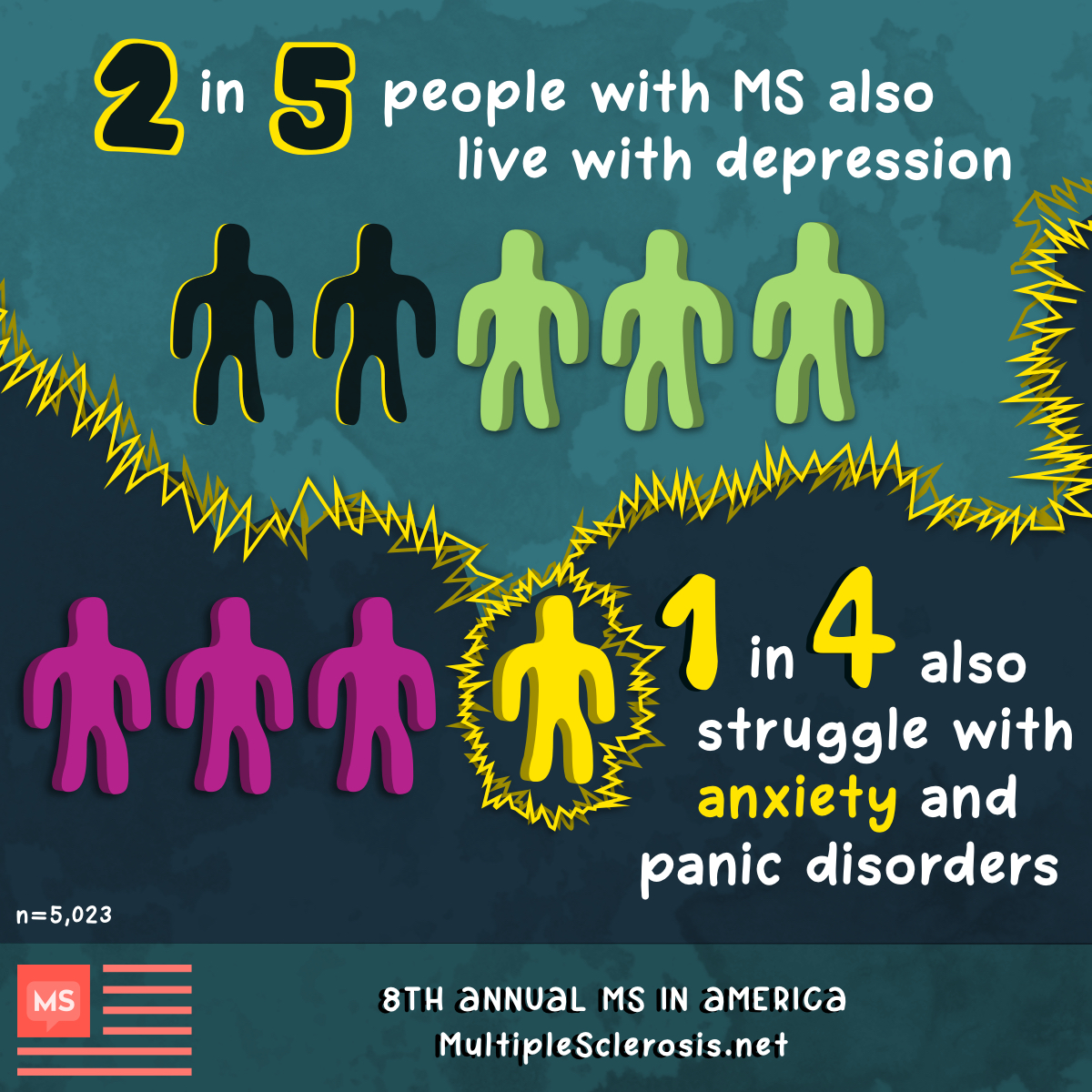
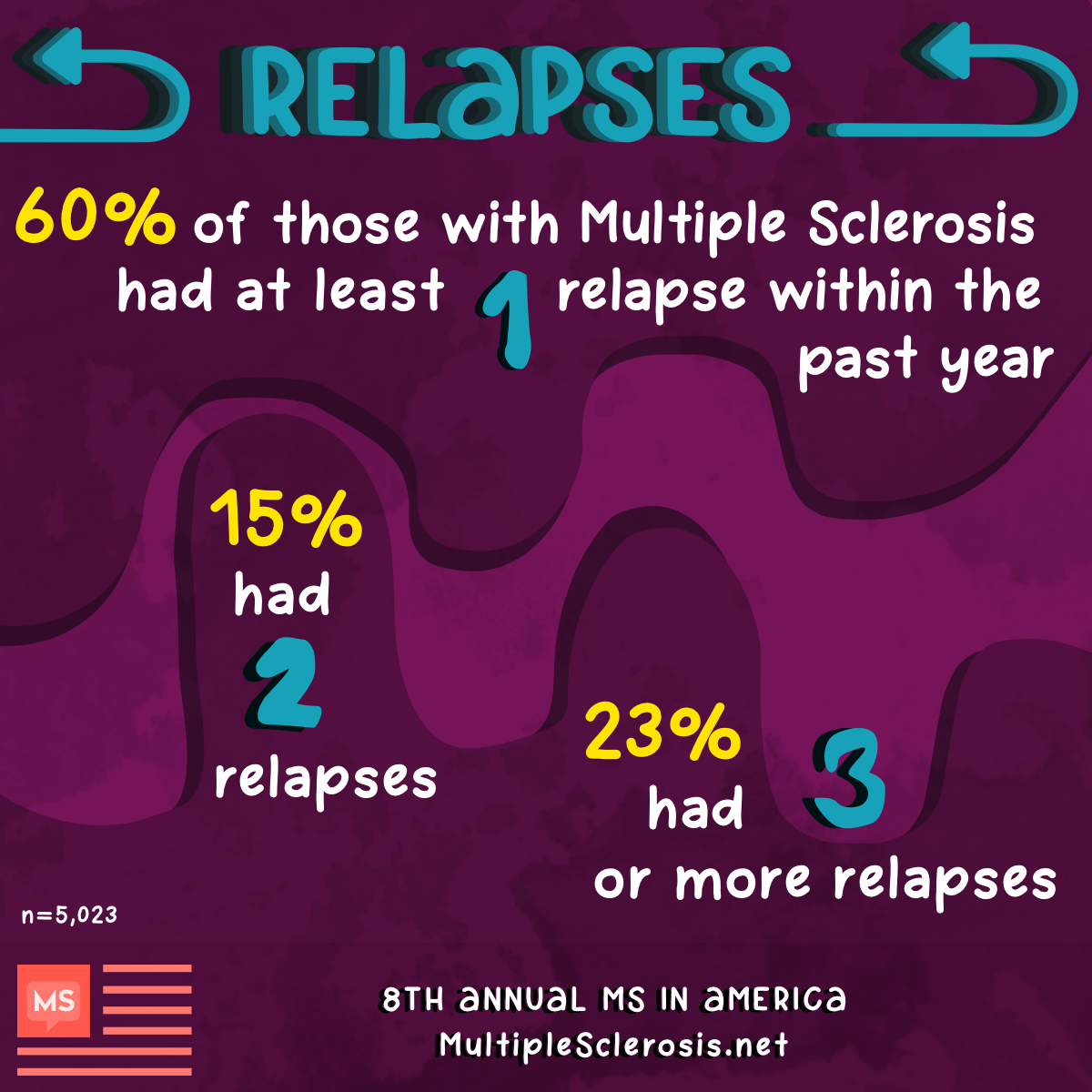
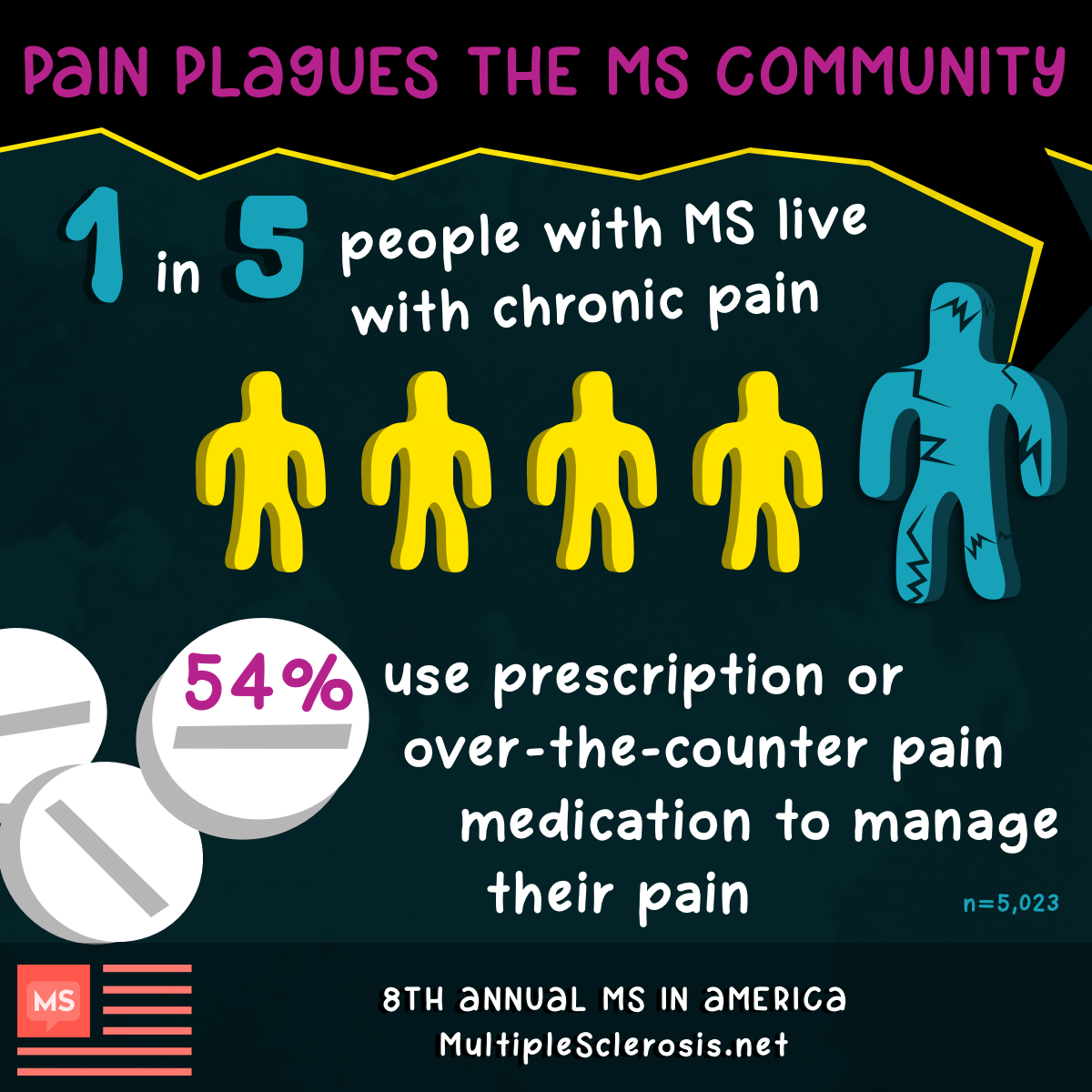
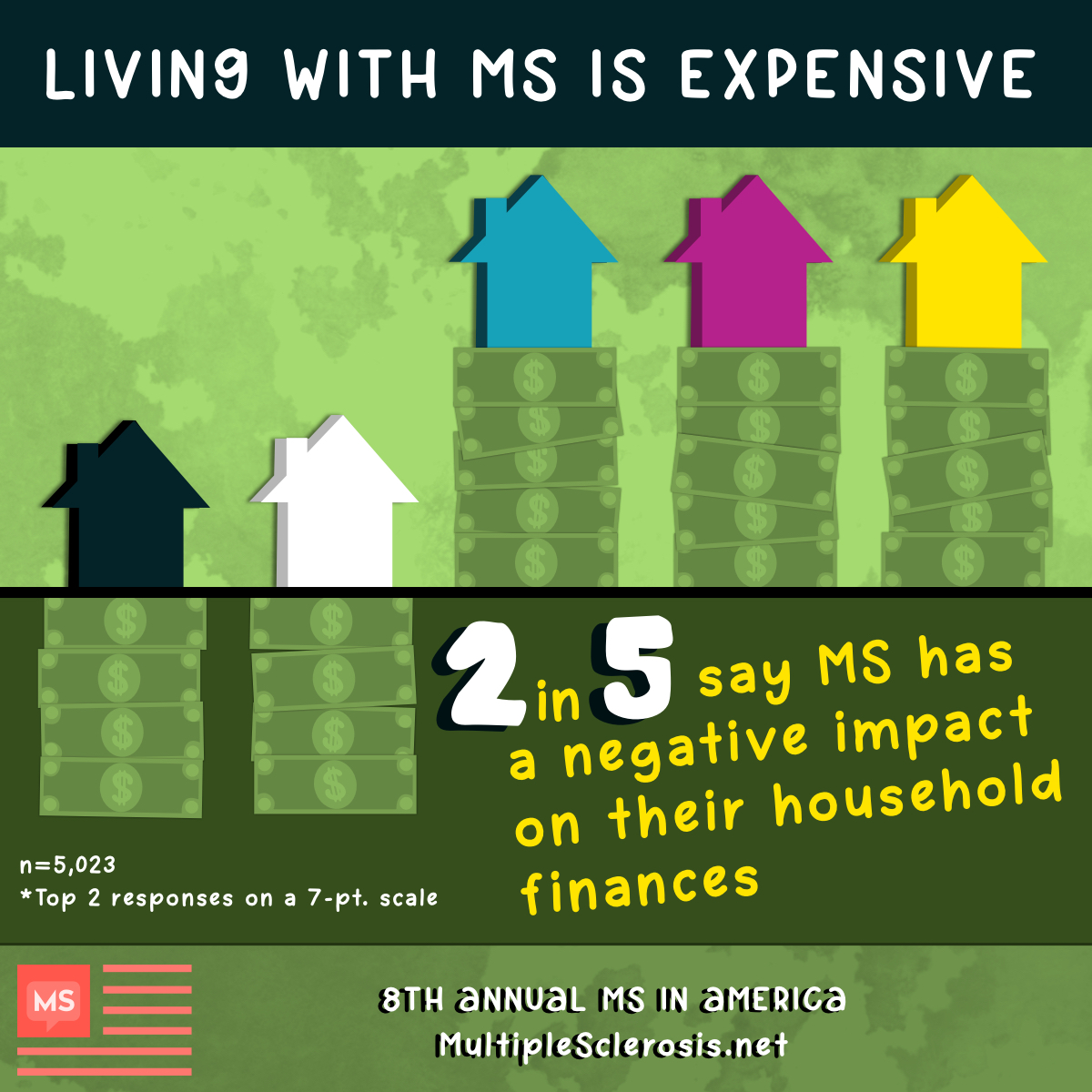
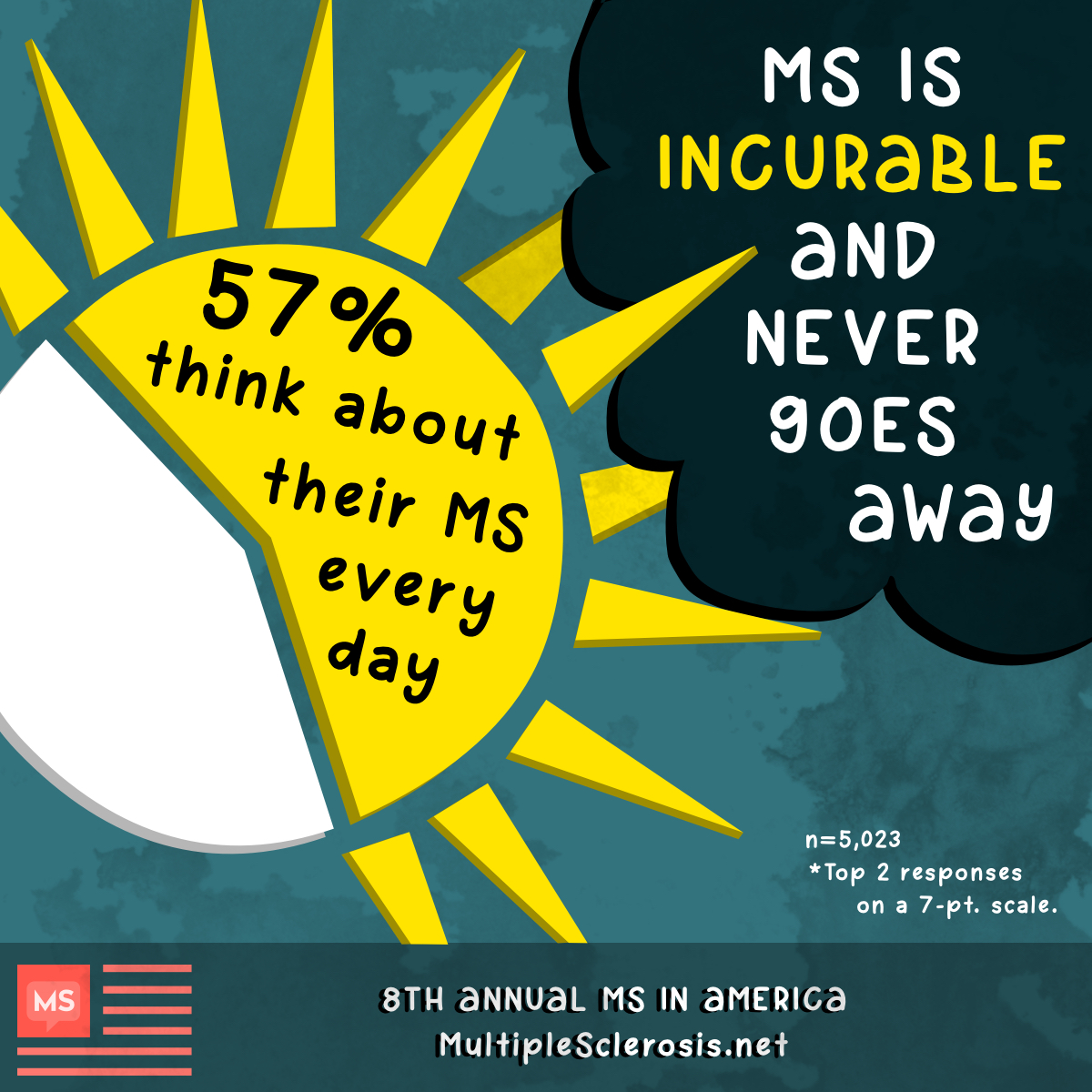
Join the conversation